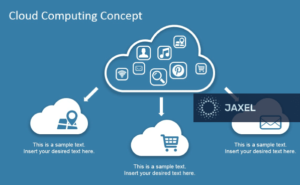Cloud-native applications are in use for cloud computing processes. The purpose of these apps is to run and host the cloud with a software delivery model. Nowadays, cloud-native application development is available with DevOps services. These apps are designed and built from traditional cloud-based applications. Moreover, the team uses tools that are easy to monitor and adaptable. For proper working of the system, you need to have a monitoring system. So, here is a complete guide on the need for DevOps in native app development.

Cloud-Native DevOps:
When we combine cloud-native and DevOps, it consists of a set of practices containing actions, teams, and development. These practices result in improvements in the experience of end users. Also, building cloud native applications is all about making the company flexible. You can automate processes to make the applications more scalable. Moreover, you can apply these practices to different aspects of the company. Also, you can change the overall process to make the system more effective. You need to adopt DevOps to develop a proper company culture. It would be the best way to align the tools. Try to motivate your employees for effective collaboration and faster feedback.
Features:
The cloud-native application architecture helps to communicate with APIs. Moreover, these tools are ideal to manage different components. You can manage the app update by using the best solutions. Containers are a kind of software that helps to run the application. In addition, containers help to avoid microservices interference with other apps. It is a helpful way to keep apps secure and save data. Moreover, you will be able to adopt many services at a time. So, try to use this feature of native app development for business management.

Advantages:
Cloud-native application development is ideal for updates. Scaling becomes easy with this approach by reducing service downtime. Here are the top cloud native DevOps benefits one should need to consider.
Easy Management:
When you use DevOps development services, you can easily manage the system. With the growing popularity of this platform, you can access the system features. In addition, these services are helpful for planning and networking. Companies can reduce the time to use human resources.
Reduced Costs:
Nowadays, more than 80% of businesses are spending their budget to support the organization’s development. However, they don’t even use the data center capacity for proper business operations. The best cloud application platform can offer a path to organizations. You can save a lot of your amount by shifting towards budget-friendly services. Thus, cost reduction should be your first choice for apps.
Reliable:
One of the best things to consider about DevOps in building cloud-native applications is its reliability. When you find a fault in the system, you can use adjacent microservices. So, reliability is the benefit of native app development.
Tracking system:
Cloud-native apps use automation to use app features and updates. With this approach, developers can track their microservices. Also, the apps are ideal for managing system services. These applications are divided into small groups, and the teams can focus on the system. Also, it can help to study the applications by learning the function together.
Enhanced Security:
One of the best advantages of building cloud native applications is it offers security. You can share data between different users and organizations. It can lead to several gateways that act as cloud-native application security. Therefore, if you are looking for a safe and secure method, you should prefer using DevOps.
Customer Experience:
The features of traditional applications are ideal for a better customer experience. So, DevOps cloud native application development helps adopt modern techniques. You have to choose unique strategies that could be helpful for your organization. When you move to a cloud-native app, it can help you to target the relevant audience. Thus, you should prefer native apps to provide a better customer experience.
Appropriate Guidelines:
One of the best benefits of using cloud-native apps is that they are designed for modern data influx. Nowadays, people have an influx of data, and there are chances of losing it. Everyone knows that traditional organizations have the option to store data. However, cloud-native application security makes it possible to analyze data. You can assign data for storage purposes. In addition, these infrastructures are beneficial to ensure different system regulations. It can only be possible when you follow appropriate guides.

Best Practices:
The best cloud application platform is based on business operations. The native apps have no rules on business problems, and you can easily manage them. All the cloud-based apps are helpful to design and build the app. Following are some of the best practices for the best design.
Automation:
Automation is helpful for the best cloud-native application development. Moreover, it allows consistent provisioning of the application environment. The team can easily manage the development environment. The team can handle the building and supporting features. In addition, you can track documents with the help of a team. You should adopt the latest solutions for proper app management.
Documentation:
Nowadays, the building teams have features to support the cloud-native application architecture. With the help of documents, the team can easily track the changes in the system. In addition, they can check how members are contributing to the team’s development.
Monitoring:
One of the best practices for DevOps in the native application is it provides a monitoring environment. Also, you can manage the application that can support the system Infrastructure.

Future of Cloud-Native Applications:
Cloud-native apps are in use for years and have a bright future in software development. In addition, the cloud-native application architecture has 6.5 million developers in 2020. You can handle many cloud computing problems with this approach. Also, it offers developers features to automate the processes with ideal operations. The purpose of cloud-native apps is to bring advancement in marketing. Thus, you should prefer this approach if you want to secure your apps in the future.
Conclusion:
DevOps has spread throughout the technical world, and it is one of the advanced approaches these days. The implementation of cloud-native application development helps businesses in the marketing of technologies. Adopting the cloud-native approach is a way to embrace many innovations. The cloud-native teams use tools that are built on modern infrastructure. Moreover, cloud-native apps are easy to monitor and adaptable. If you are looking for the best ways for a native application, you should prefer using DevOps. It could be the best way to support the native application development process.









